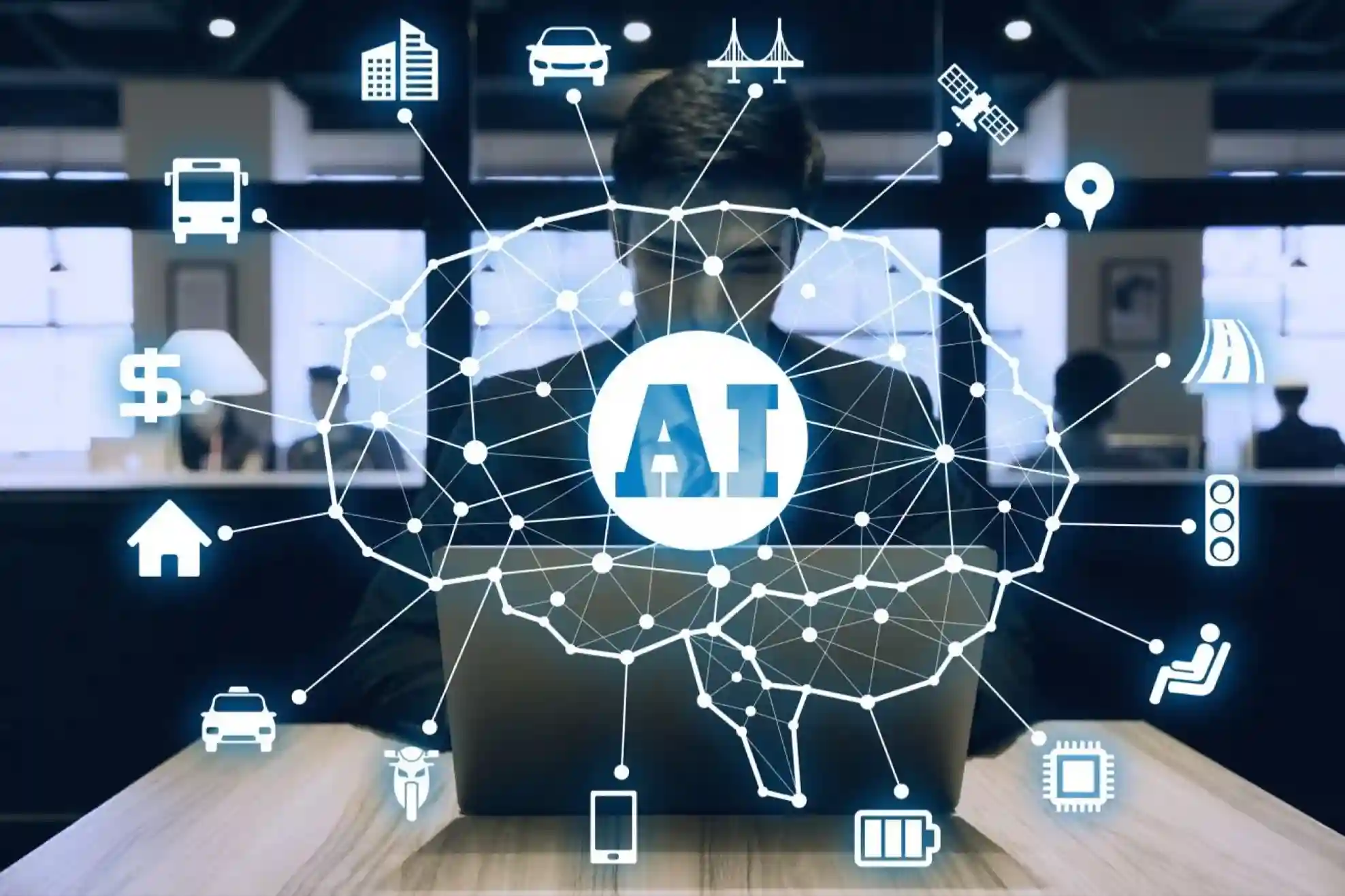AI technology is revolutionizing various industries, from healthcare to finance, manufacturing to customer service. With advancements in machine learning, deep learning, and natural language processing, AI technology has become a key driver of innovation and efficiency in today’s digital world. This article explores the history, current trends, and future prospects of AI, offering insights into its applications, benefits, and potential challenges.
What is AI Technology?
AI, or Artificial Intelligence, refers to the development of computer systems capable of performing tasks that typically require human intelligence. These tasks include learning, reasoning, problem-solving, understanding natural language, and visual perception. At the core of AI technology is the ability to analyze vast amounts of data and make decisions with minimal human intervention.
AI technology can be categorized into three types:
- Narrow AI (Weak AI): AI systems designed for specific tasks such as speech recognition, image classification, or recommendation systems.
- General AI (Strong AI): AI systems with the ability to perform any intellectual task that a human can do.
- Super AI: Hypothetical AI that surpasses human intelligence in all areas.
History of AI Technology
AI’s origins can be traced back to the mid-20th century when the idea of creating machines that could mimic human intelligence first emerged. Pioneers such as Alan Turing laid the groundwork with the Turing Test, which proposed that a machine could be considered intelligent if it could fool a human into thinking it was also human.
Key milestones in the history of AI technology include:
- 1950s-1960s: Early developments in symbolic AI, where computers were programmed to solve mathematical problems.
- 1980s-1990s: The emergence of machine learning and neural networks, allowing computers to learn from data.
- 2000s-present: Advancements in deep learning, big data, and cloud computing have propelled AI to new heights, making it an integral part of modern technology.
Applications of AI Technology

AI technology is being integrated into virtually every industry, bringing about significant changes and improvements. Here are some of the key sectors where AI is making an impact:
Healthcare
AI is transforming the healthcare industry by assisting in diagnosis, treatment planning, and even patient care. AI-powered systems can analyze medical records, detect patterns, and help doctors make more informed decisions. Some applications include:
- Medical Imaging: AI algorithms can detect abnormalities in X-rays, MRIs, and CT scans with high accuracy.
- Personalized Treatment Plans: AI helps create customized treatment plans based on patient data.
- Drug Discovery: AI accelerates the drug development process by predicting how new drugs will interact with the human body.
Finance
AI technology is reshaping the financial sector by automating processes, improving fraud detection, and enhancing customer service. Applications include:
- Fraud Detection: AI algorithms analyze transactional data in real time, flagging suspicious activities.
- Automated Trading: AI-driven algorithms analyze market data and execute trades based on patterns and predictions.
- Personal Finance Management: AI-powered apps assist users in managing budgets, investments, and spending habits.
Manufacturing
In manufacturing, AI is improving efficiency by optimizing production processes, predicting equipment failures, and reducing downtime. Key applications include:
- Predictive Maintenance: AI can analyze machine data to predict when maintenance is needed, avoiding costly breakdowns.
- Quality Control: AI systems can identify defects in products during the manufacturing process, ensuring high quality.
- Robotics: AI-powered robots are used in assembly lines, handling repetitive tasks with precision.
Customer Service
AI is enhancing customer service by providing 24/7 support through chatbots, virtual assistants, and AI-driven customer relationship management systems. Some benefits include:
- Chatbots: AI-powered chatbots can handle customer inquiries, resolve issues, and provide recommendations based on user behavior.
- Sentiment Analysis: AI systems analyze customer feedback to gauge satisfaction levels and identify areas for improvement.
Benefits of AI Technology
The growing adoption of AI technology brings numerous benefits, including:
- Efficiency: AI can process vast amounts of data quickly, making it ideal for industries that rely on data-driven decision-making, such as healthcare and finance.
- Cost Reduction: By automating tasks, AI helps companies reduce labor costs and minimize human errors, leading to significant savings.
- Innovation: AI enables the development of new products, services, and business models, fueling innovation in various sectors.
- Personalization: AI systems can analyze user data to offer personalized recommendations, improving customer experiences.
- Accuracy: AI can improve the accuracy of processes, such as medical diagnoses and financial predictions, by analyzing complex data sets.
Challenges and Ethical Considerations
While AI technology offers immense potential, it also presents several challenges and ethical concerns:
Job Displacement
As AI automates routine tasks, concerns about job displacement arise. While AI creates new opportunities in fields like data science and AI development, workers in traditional roles may face job losses.
Data Privacy
AI systems rely on large datasets to function, raising concerns about data privacy and security. Organizations must implement strict measures to protect user data from breaches and misuse.
Bias in AI
AI algorithms are only as good as the data they are trained on. If the data contains biases, the AI system may produce biased results, leading to ethical concerns, particularly in areas like hiring and law enforcement.
Accountability
As AI systems become more autonomous, determining accountability for errors or malfunctions becomes challenging. Legal frameworks are needed to address issues of responsibility when AI systems fail.
The Future of AI Technology

The future of AI technology holds exciting possibilities. With advancements in quantum computing, AI systems will become even more powerful and capable of solving complex problems that were previously thought to be unsolvable.
AI in Everyday Life
AI technology will become more integrated into everyday life through smart homes, autonomous vehicles, and personalized digital assistants. AI-powered systems will anticipate user needs and provide seamless experiences across devices.
AI and Education
AI will play a significant role in education, offering personalized learning experiences for students. AI systems will adapt to each student’s learning style, providing customized lessons and feedback to enhance the learning process.
AI and Sustainability
AI can contribute to sustainability efforts by optimizing resource use, reducing waste, and monitoring environmental conditions. AI systems will help companies and governments make more informed decisions about environmental impact.
AI and Ethics
As AI technology advances, ethical considerations will become even more critical. Researchers and policymakers will need to collaborate to ensure that AI is developed and used responsibly.
Table: AI Applications Across Industries
| Industry | Key Applications of AI Technology |
|---|---|
| Healthcare | Medical imaging, personalized treatment, drug discovery |
| Finance | Fraud detection, automated trading, personal finance |
| Manufacturing | Predictive maintenance, quality control, robotics |
| Customer Service | Chatbots, sentiment analysis, virtual assistants |
| Education | Personalized learning, adaptive testing, AI tutoring |
| Retail | Product recommendations, inventory management, chatbots |
Frequently Asked Questions (FAQs)
What is AI technology?
AI technology refers to the development of computer systems that can perform tasks typically requiring human intelligence, such as learning, reasoning, and problem-solving.
How is AI used in healthcare?
AI is used in healthcare for medical imaging, personalized treatment planning, drug discovery, and improving patient care.
What are the ethical concerns of AI technology?
Ethical concerns of AI technology include job displacement, data privacy issues, biases in AI systems, and accountability for AI-driven decisions.
What is the future of AI technology?
The future of AI technology involves more integration into everyday life, advancements in education, sustainability efforts, and ongoing discussions about ethics and accountability.
How can AI improve customer service?
AI improves customer service through chatbots that provide 24/7 support, sentiment analysis for feedback, and virtual assistants that assist with inquiries and transactions.
AI technology has already made significant contributions to various industries and continues to evolve at a rapid pace. From healthcare to finance, manufacturing to education, AI is reshaping how we live and work. As AI technology advances, it will bring new opportunities, challenges, and ethical considerations. Embracing the potential of AI while addressing its challenges is crucial for building a future where technology and humanity can coexist and thrive.



